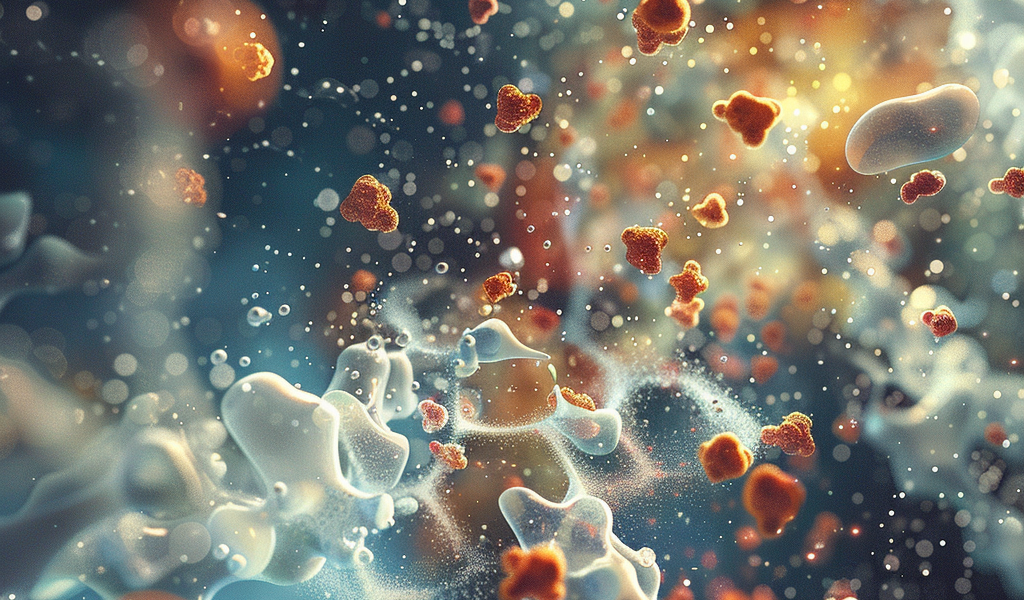Groundbreaking Discovery: Peptides Found to Form on Cosmic Dust Particles, Challenging Previous Beliefs
Recent research has unveiled a groundbreaking discovery that challenges previous beliefs about the formation of life’s building blocks in space. Peptides, essential organic compounds, have been found to form on cosmic dust particles even in the presence of water, hinting at a potential extraterrestrial origin.
Peptides, which are vital in various biological processes such as serving as enzymes, have long been studied for their significance. Dr. Serge Krasnokutski and his research team from the Astrophysics Laboratory at the Max Planck Institute for Astronomy at the University of Jena have been at the forefront of investigating the formation of peptides on cosmic dust particles.
In a collaboration with the University of Poitiers, France, the team made a significant breakthrough by demonstrating that the existence of water molecules on dust particles does not hinder the formation of peptides. This finding challenges the conventional belief that water would impede the formation process.
By simulating outer space conditions in a vacuum chamber and introducing substances commonly found in molecular clouds like ammonia, atomic carbon, and carbon monoxide, the researchers were able to create an environment conducive to peptide formation. Dr. Krasnokutski emphasized that all the necessary chemical elements for peptide synthesis were present in their experimental setup.
The chemical precursors to amino acids, known as aminoketenes, were observed to initially form from the raw materials. These precursors then combined to create chains, ultimately resulting in the formation of polypeptides. This process sheds light on the intricate steps involved in peptide synthesis and challenges previous assumptions about the role of water in this chemical reaction.
The study’s findings, published in the journal Science Advances, open up new possibilities in astrobiology and astrophysics by suggesting that the formation of essential organic compounds like peptides could occur in space, paving the way for a deeper understanding of the origins of life’s building blocks.
Dr. Krasnokutski’s innovative approach in replicating space-like conditions in a controlled environment has provided valuable insights into the potential extraterrestrial origins of peptides, offering a fresh perspective on the fundamental processes underlying life as we know it.





